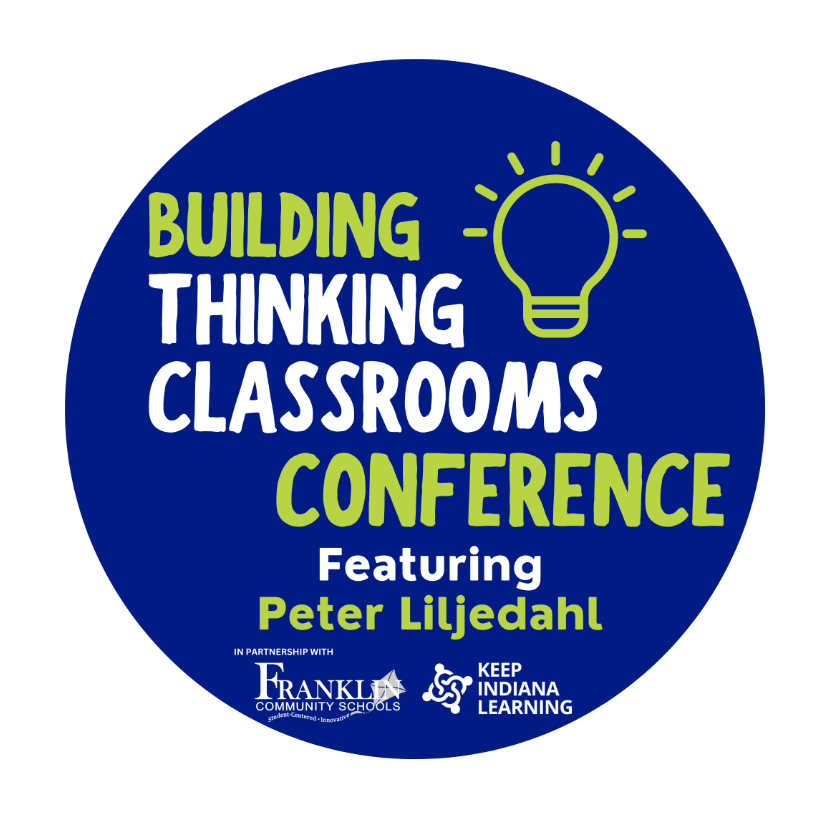Keep Indiana Learning and Building Thinking Classrooms
The last two days of June some of the Thinking Nation team was able to join hundreds of educators from around the country in Franklin, IN for the Building Thinking Classrooms Conference hosted by Keep Indiana Learning. This was a great conference to end a hectic two months of travel for the team.

Dr. Peter Liljedahl, Professor of Mathematics Education at Simon Fraser University, published Building Thinking Classrooms in Mathematics in 2020, quickly garnering recognition for his research. As the title suggests, Dr. Liljedahl presents new and innovative strategies and mindsets that teachers can incorporate into their classrooms to make them thinking classrooms. While his work specifies the math classroom, there is so much that social studies teachers can glean from his book.
I was fortunate to be able to present at the conference, taking a deeper look into how some of the strategies could be realized in social studies classrooms. As our own organization’s name implies, we believe it is essential to build thinking classrooms. In fact, my session was simply titled: Building Thinking (Social Studies) Classrooms.
I specifically wanted to explore the intersection of Liljedahl’s work and the role of assessment in social studies classrooms. As I’ve often written about, if we truly want to shift the paradigm of history education, we must rethink how we measure success in the classroom. In Building Thinking Classrooms, Liljedahl rightfully reminds us that “we evaluate what we value” (BTC Practice 12). I took the time to challenge the room to think about what types of messages we send when all we evaluate in social studies is content acquisition. As I’ve noted before, it is not our job to create walking encyclopedias, but thinking citizens.
Thinking Nation really focuses on this work through our formative assessments on disciplinary thinking and our summative assessments, which we call Curated Research Papers (more on that term perhaps next week!) If we as teachers take backwards planning seriously and backward plan from assessments on thinking rather than solely content knowledge, we demonstrate to our students that deep thought is what is valued most by us. This is essential if we truly want to shift the paradigm of social studies education.